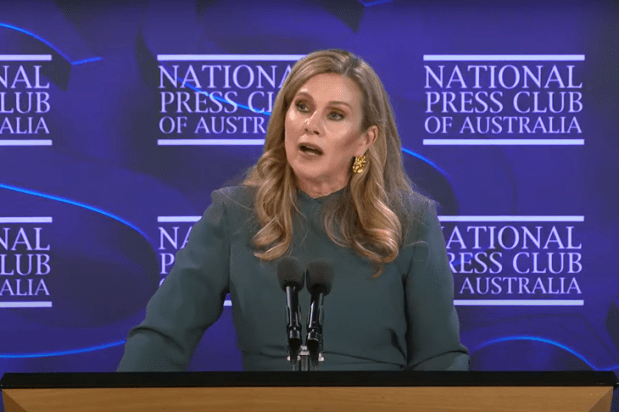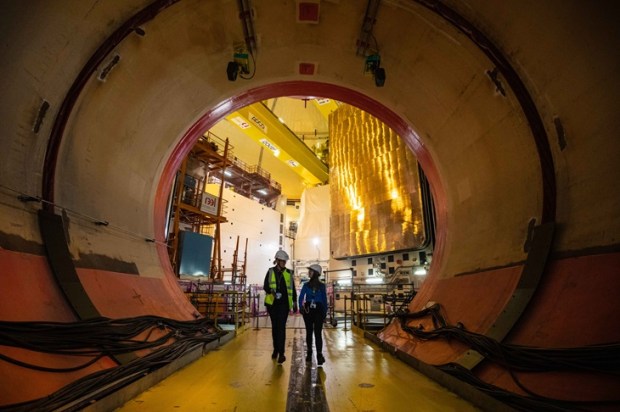Australia’s unsettling lack of industrial and productive self-sufficiency was accentuated throughout Covid, with the ramifications of vulnerable international supply chains spurring domestic economic turmoil that has only since been exacerbated by Vladimir Putin’s illegal invasion of Ukraine.
The narrative that has long been pushed by our nation’s politicians and mainstream media is that upward pressure on the prices of a number of critical goods is a ‘global issue’, a sentiment that is both extremely misguided and disingenuous.
The reality is that Australia has, over the course of the last few decades, become far too integrated and reliant on the international economy than it needs to be and could have better weathered the inflationary storm brought about by geopolitical catastrophes if our politicians focused on funnelling investment into productive infrastructure to fill supply shortfalls.
A sizeable portion of the Australian public seems to have fallen for the common misconception that their nation is an advanced economy. Nothing could be further from the truth.
Australia currently ranks 93rd on the Harvard Atlas of Economic Complexity, an index that measures the respective industrial capabilities of nations, behind third-world countries like Uganda and Costa Rica. We are a net importer that virtually relies on offshore productive capacity for the delivery of the majority of crucial goods and services.
The current composition of the Australian economy is a worrying sign of an imminent decline in the prosperity to which we have long become accustomed. It is very much a Ponzi scheme dressed in the guise of an economy that is supposedly sophisticated relative to its developmental and non-developmental counterparts.
As CEO of Freelancer.com Matt Barrie exceptionally put it, ‘We’re a very primitive country in terms of what we export. We dig out of the ground basically dirt, which is iron ore, stick it on a boat and ship it to China.’
For years now, we have relentlessly channelled credit into fundamentally unproductive but nonetheless vital assets, particularly housing, that produce above-average returns for investors in the short term but only bloat markets in the long term.
We have created demand through swathes of immigration and a never-ending stream of quantitative easing in the same time frame we have rapidly diminished our industrial and productive capabilities. There’s only one end-product that can be created by such a system and it’s called inflation. We are simply spurring demand and curtailing supply.
We got away with it for years during a decade-long economic upswing, but given the predicament we find ourselves in today, it seems the chickens have come home to roost.
The simplicity of the Australian economy has had a proverbial light shone on it since the start of the pandemic and will be exposed again in the case of another event that induces global upheaval, an increasingly likely scenario given the geopolitical complexities and tensions by which the 21st Century is uniquely characterised.
If we are to mitigate the consequences of such a situation, we must make a conscious nationwide effort to urgently address our vulnerabilities.
Australia can feasibly transform itself into a complex modern economy capable of withstanding the frangible supply chains present in the current global trading environment by taking advantage of its distinct geological makeup. We must utilise our abundance of natural resources by establishing advanced downstream processing and manufacturing facilities capable of value-adding our existing exports instead of simply shipping them offshore for some quick cash.
Australia produces far greater amounts of both iron ore and metallurgical coal-coal used in the production of steel, than any other nation on the planet, yet only supplies 0.3 per cent of the world’s steel. Never mind stadiums in Tasmania and housing complexes on the outskirts of Sydney, why not invest in the development of a world-class steel industry to upgrade our exports, boost our gross domestic product (GDP) and increase government revenues without having to resort to tax hikes?
Australia currently exports both its iron ore and coking coal to China only for it to be smelted into steel and ultimately shipped back to us. If the majority of the Australian public is becoming increasingly worried about the diplomatic risks and tensions posed by the Chinese Communist Party (CCP), shouldn’t we urgently be searching for opportunities to rapidly decouple from our trade reliance with them?
It doesn’t stop there.
Australia is the world’s fourth largest producer of uranium, but has counterintuitively prohibited the use of nuclear energy as a potential source of power. Shouldn’t Australians have the right to use uranium in its applications for creating cheap energy that will bolster onshore industries and provide stable employment to countless communities across the nation?
If Australia wants to hedge against unpredictable and turbulent geopolitical circumstances, it has all the goods it needs to effectively do so at its disposal.

























